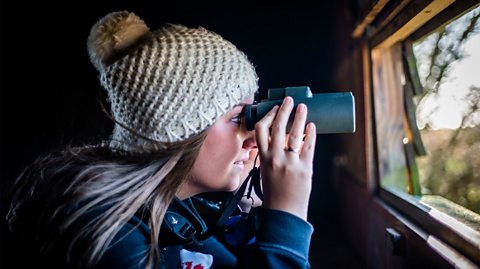Even the hardest working business people, those who prefer overtime to play time, can benefit from a meeting with David Pallash.
To give him his full title, David is senior manager of global programs and partnerships at Lego. Drill down into his job spec and heвҖҷs also responsible for bringing the joy of playing to children in some of the worldвҖҷs most underprivileged communities.
He introduced his role to ҙуПуҙ«ГҪ Bitesize by saying: вҖңA lot of people donвҖҷt believe play is important, they think itвҖҷs something you just do when youвҖҷve finished all the important stuff.
вҖңWe try to get across that play is uber important, itвҖҷs the way we learn, itвҖҷs the way we interact with the world, itвҖҷs the way we explore. We go around the world trying to remind adults, more than children really.вҖқ
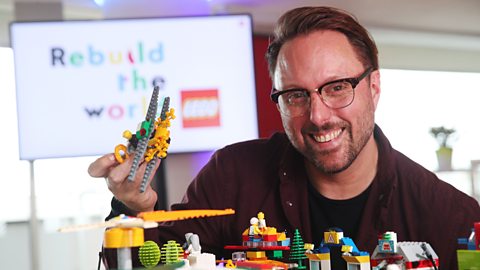
A passion for people and places
The story of DavidвҖҷs career journey is a little like a construction model. Before seeing the finished product, we have to start with the foundation bricks.
вҖңMy A-levels were biology, geography, maths and art,вҖқ David said. вҖңMy art teacher kept telling me to do it as a fourth A-level. It wasnвҖҷt that common back then, so I kept it on and IвҖҷm glad I did. I used the science to go into environmental science at university. IвҖҷve always been passionate about the planet.вҖқ
Following his studies, David spent time in Japan in order to learn the language. вҖңIt was an incredible experience,вҖқ he remembered. вҖңI went into teacher training for a year, and ended up teaching science, art and music to very small children.вҖқ
He decided to train as a teacher, which led to an appointment as headteacher at a school for international expats. A masterвҖҷs in business administration then led to his current role.
In the days before lockdown, David was a regular sight at schools and also office training days, showing up with a ready supply of plastic bricks to help people of all ages discover a little more about themselves and the world around them.
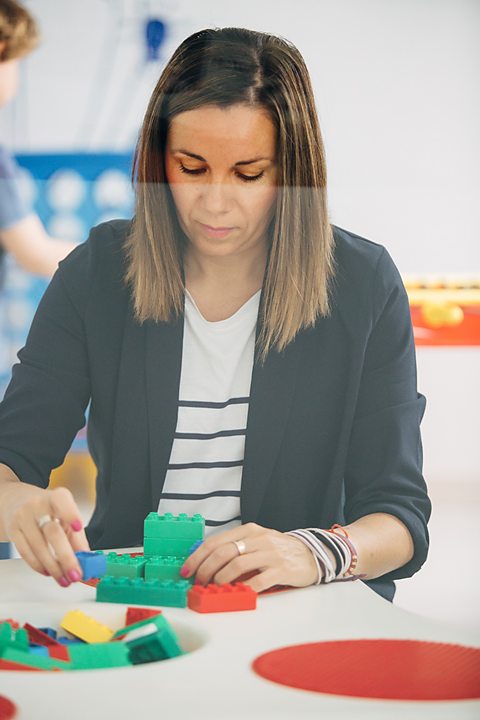
He explained: вҖңWe would give them a baseplate, a couple of random bricks and we would say, вҖҳOK, letвҖҷs start with a simple one. Build your perfect colleague.вҖҷ
вҖңThen they would maybe build someone with big arms to welcome and nurture, they might use a ladder to provide support or build a bridge. It could be people with eyes all over their head, looking out for people. People tend to build these and then build a story around it. ItвҖҷs a healthy exercise for the brain.вҖқ
He added: вҖңMy favourite was when someone got a figure and they had it in almost a Matrix-style position and I asked вҖҳWhatвҖҷs that?вҖҷ They replied, вҖҳA friend that will bend over backwards for you.вҖҷ ThatвҖҷs one of my favourites. That was so simple!вҖқ
Never too old to play
Although it can be challenging to persuade professionals who havenвҖҷt played with toys for more than 20 or 30 years to roll up their sleeves and start clicking bricks together, David found that most people can eventually be encouraged to do so: вҖңYou always hear вҖҳIвҖҷm not creative, I havenвҖҷt played with bricks in a long timeвҖҷ, but as soon as they start putting bricks together, itвҖҷs realising you donвҖҷt have to build a masterpiece, just let your creativity flow, itвҖҷs OK.вҖқ

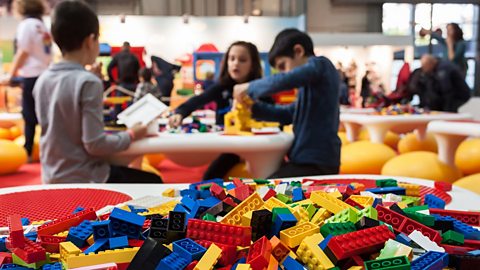
Building for the future
The work David does with children is different. Prior to the pandemic, he - or people representing his team - were travelling to meet young people all over the world on a regular basis.
During the sessions, the children discuss a topic such as renewable energy which then informs the objects they build.
And the ideas that evolve through play can be memorable. David smiled. вҖңWe end up with some very serious things, wind turbines going to the next level, even fart-powered trouser lights. After all, itвҖҷs something we all need.вҖқ
The childrenвҖҷs creations are then put on display, so that stakeholders in the different countries can take a look at the ideas if they wish to. The aim is for the ideas that children conceive be taken to global platforms such as climate change conferences.
David said: вҖңI love just getting an energy up amongst kids on subjects that matter. ItвҖҷs a real treat seeing their ideas. You do see that weвҖҷre making an impact.
вҖңWorking in a job that has a meaning is a real treat and itвҖҷs not always possible but you can find those roles, they are out there.вҖқ

Job inspiration: Careers in healthcare and frontline services. collection
Hear from people working across the healthcare sector and in frontline services, including some roles you may not know existed!
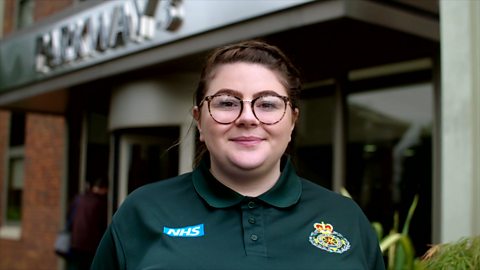
Job inspiration: Careers in media collection
Hear from young people about how they got started in their careers in media.

Job inspiration: Roles to help protect the planet. collection
Check out our collection of planet-friendly jobs to inspire your future career path.
